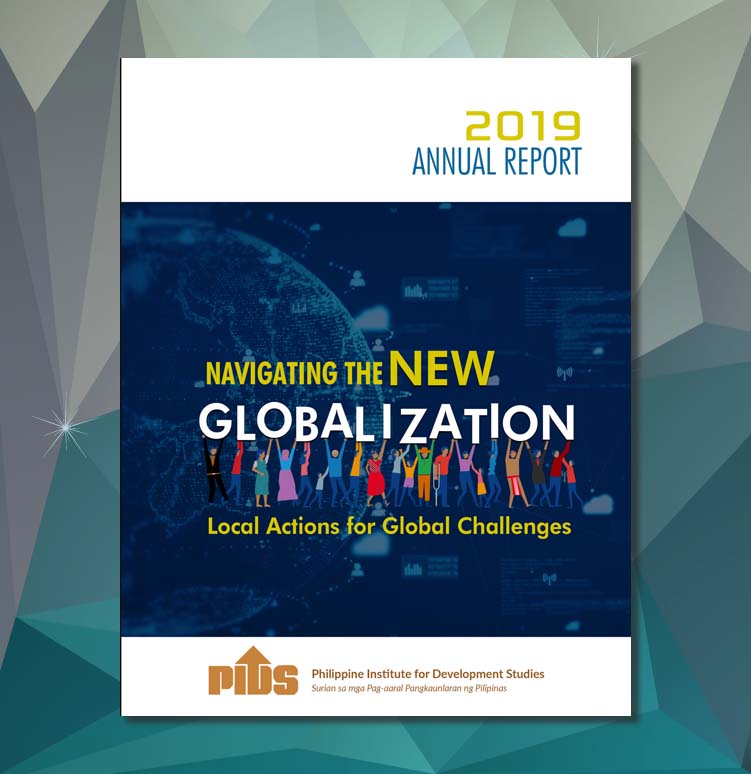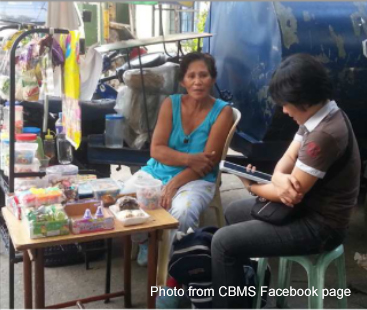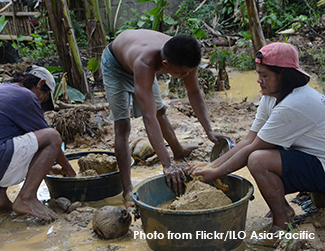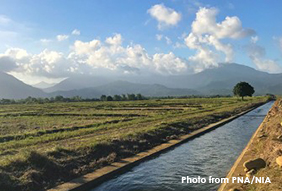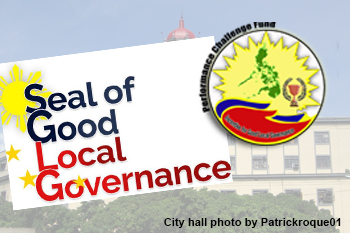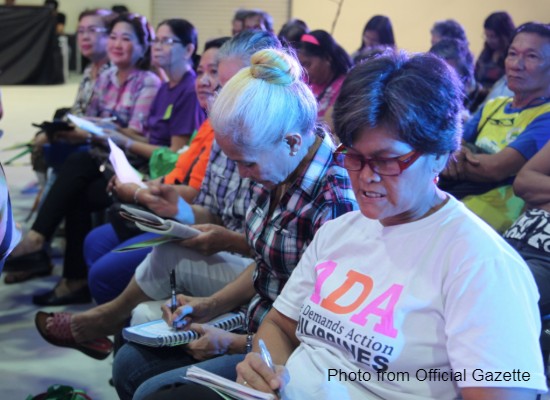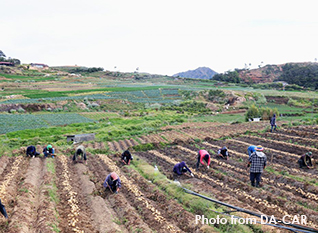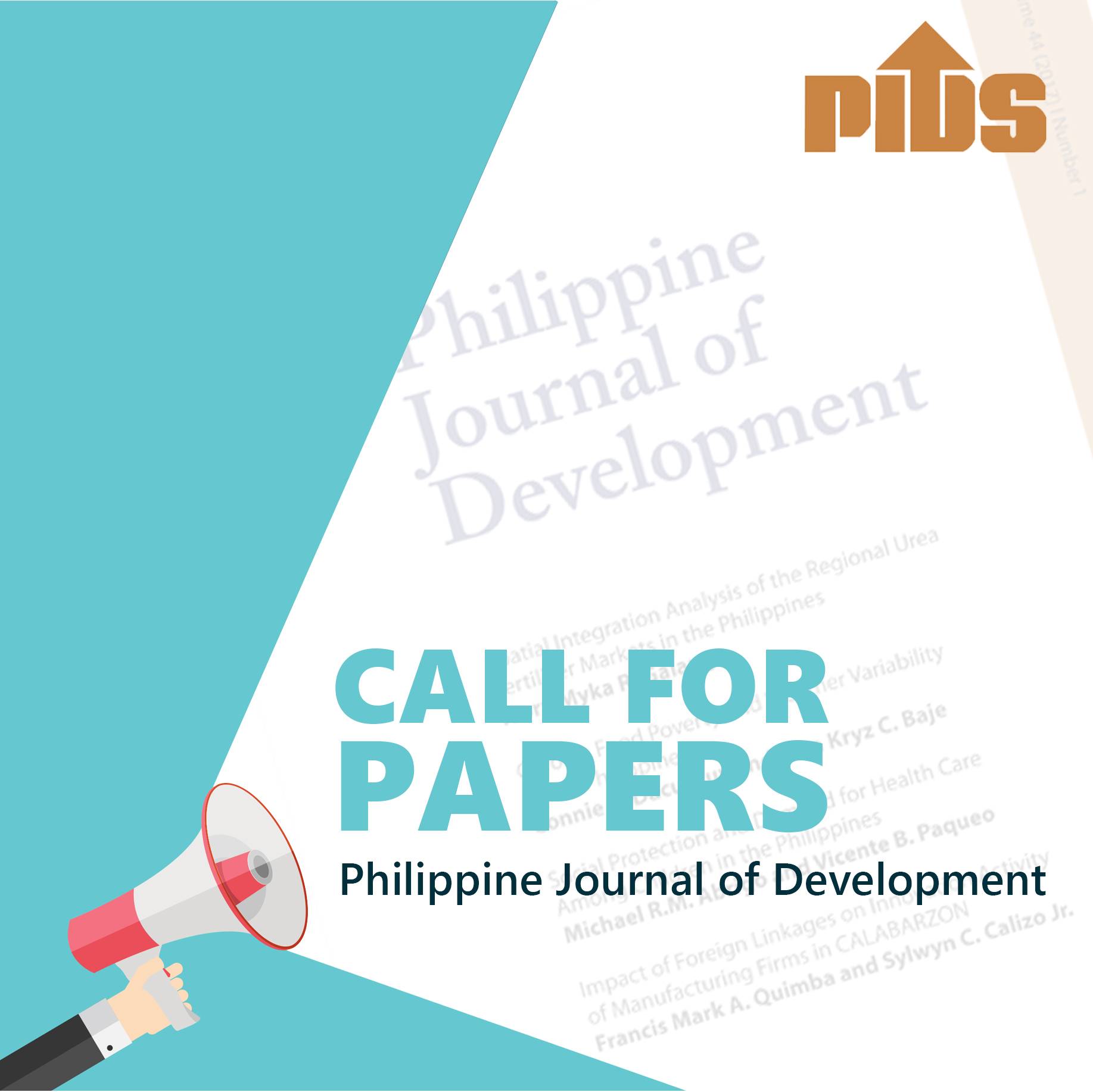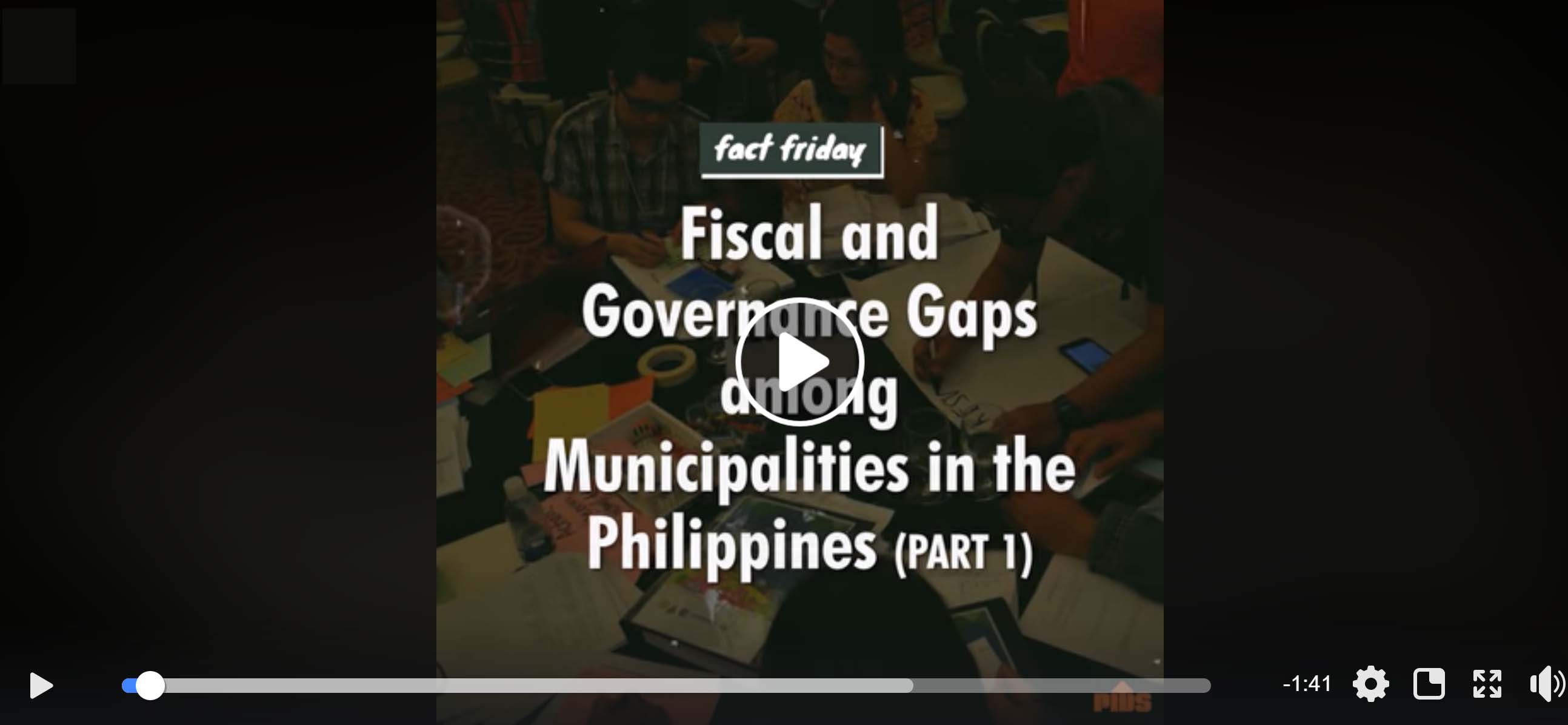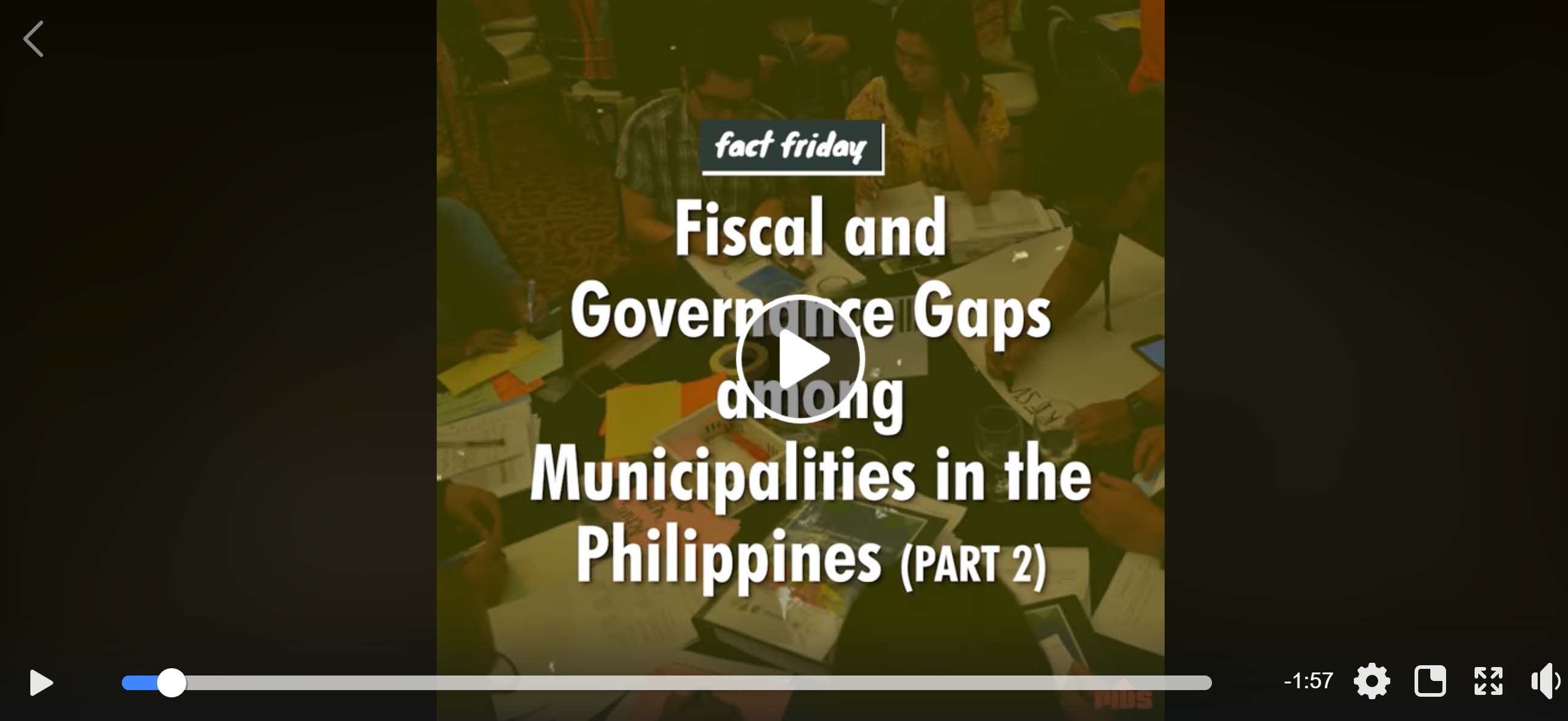Having trouble reading this email? View it in your browser. |
||||||
 |
||||||
|
||||||
The year 2019 marks a significant milestone for PIDS as it embarks on aligning its systems and processes with international standards and obtaining ISO certification. Another key accomplishment is the finalization of the Institute's latest five-year Research Agenda
The Philippine Institute for Development Studies (PIDS) is conducting an online survey on the Social Amelioration Program (SAP) among the beneficiaries of the Pantawid Pamilyang Pilipino Program (4Ps). The survey is part of an ongoing study of the Institute on the program implementation and payment system.
Majority of municipalities in the country use the Community-Based Monitoring System (CBMS) in development planning, a study of state think tank Philippine Institute for Development Studies (PIDS) titled “The Community-Based Monitoring System (CBMS) as a local planning tool: Results from the PIDS-DILG baseline study on policy and governance gaps for the Local Government Support Fund Assistance to Municipalities (LGSF-AM) Program" revealed.
While small-scale mining is seen to bring employment and economic opportunities particularly in the countryside, issues continue to hound the sector. Targets for irrigation development are “hardly met” despite massive increases in funding recently, according to a study published by state think tank Philippine Institute for Development Studies (PIDS).
The government needs to revisit the objectives and designs of the Performance Challenge Fund (PCF) and the Seal of Good Local Governance (SGLG) to ensure that no local government unit (LGU) is left behind.
The country’s ageing population poses a challenge to the fiscal sustainability of the government’s Universal Health Care (UHC) program.
Farmers in Benguet who are the major producers of cutflowers and high-value vegetable crops in the country are facing barriers in using weather and climate information provided by the Philippine Atmospheric, Geophysical, and Astronomical Services Administration (PAGASA). |
May 14, 2020, 2–4PM May 28, 2020, 2–4PM June 4, 2020, 2–5PM
From May 16 to 31, 2020, the Philippine Institute for Development Studies (PIDS) shall adopt a combination of work-from-home and skeleton (skeletal) workforce arrangements pursuant to the provisions of Civil Service Commission Memorandum Circular 10, series of 2020.
The Philippine Journal of Development is a professional journal published by the Philippine Institute for Development Studies. It accepts papers that examine key issues in development and have strong relevance to policy development. As a multidisciplinary social science journal, it accepts papers in the fields of economics, political science, public administration, sociology, and other related disciplines. It considers papers that have strong policy implications on national or international concerns, particularly development issues in the Asia-Pacific region. CLICK HERE for the guidelines in the preparation of articles. Submissions and inquiries may be sent to PJD@mail.pids.gov.ph. |
|||||
FACT FRIDAY Fiscal and Governance Gaps among Municipalities in the Philippines (PARTS 1 AND 2) Hello PIDS friends! Here’s our #PIDSFactFriday videos on fiscal and governance gaps among municipalities in the Philippines. These videos are based on the PIDS study titled, “Baseline Study on Policy and Governance Gaps for the Local Government Support Fund Assistance to Municipalities (LGSF-AM) Program”, written by Charlotte Justine Diokno-Sicat (research fellow), Catharine Adaro (former supervising research specialist), Ricxie Maddawin (research analyst), Angel Faye Castillo (research analyst), and Maria Alma Mariano (former senior research specialist). Like us on Facebook for more #PIDSFactFriday issues. |
||||||
Need help? Have feedback? Feel free to contact us. |
||||||
